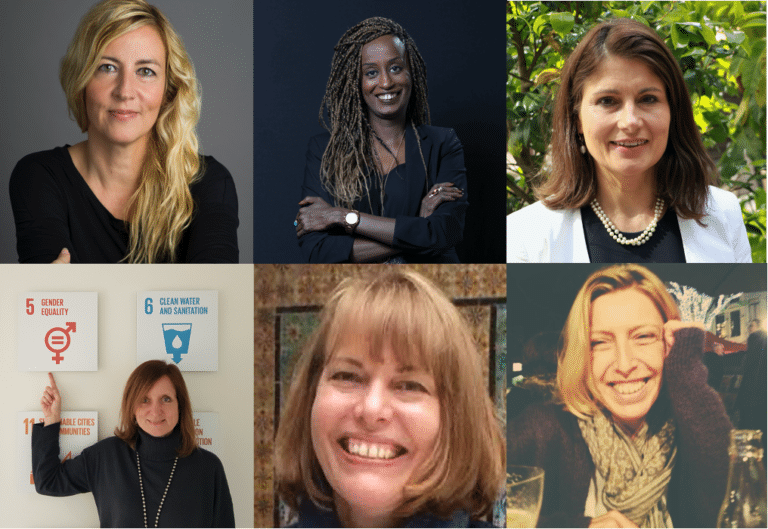
On 25 November, Ciné-ONU – in partnership with UN Women, UNFPA, and the European Commission – hosted an online screening of the award-winning film #FemalePleasure, to mark the International Day for the Elimination of Violence against Women.
#FemalePleasure portrays five courageous, bright, and self-determined women, breaking the silence imposed by their archaic-patriarch societies and religious communities, fighting for sexual liberation and autonomy for women, beyond religious rules and cultural barriers.

The event, which was attended by over 500 participants, was introduced by Dagmar Schumacher, Director of UN Women, Brussels Office. Before encouraging the audience to join the 16 Days of Activism against Gender-Based Violence, Ms Schumacher reminded the public of the ongoing shadow pandemic of violence against women. As countries implemented lockdown measures to stop the spread of the coronavirus, violence against women, especially domestic violence, intensified and, in some countries, calls to helplines have increased five-fold.
“The female body is always under attack, everywhere,” said Dr Leyla Hussein, OBE who was joined on the panel by the film’s director Barbara Miller, Dagmar Schumacher, Director, UN Women Brussels Office, Sietske Steneker, Director, UNFPA Brussels Office, Henriette Geiger, Director, People and Peace, Directorate General for Development and Cooperation, European Commission and moderator Fabienne Pompey, UNRIC.
While the film and discussion focused on the facts surrounding gender-based violence and the challenges in overcoming it, the panelists stressed that the situation can be improved. Ms Steneker pointed out that while the social norms and cultures that underpin patriarchal societies “can be very powerful”, they are also “just ideas, and they can change. Change is possible, so let’s make it happen.” Recognising the importance of culture and films such as #FemalePleasure in helping to tackle these norms, Ms Schumacher said that the film “gives me even more strength and purpose to continue my work. Perpetrators could stop violence against women tomorrow. We don’t need a vaccine. It just needs to be done.”
In response to a question from the audience on how men can help combat gender-based violence, Ms Steneker said that “it is imperative for boys and men to stand up for girls and women. Many more boys and men should use their privilege to stand up for what’s right.” Indeed, the importance of men in helping to address violence against women was further highlighted by Dr Hussein, who claimed that while women’s lack of education often makes them “the foot soldiers of the patriarchy”, it is men who hold much of the power in decisions that lead to gender-based violence.
A theme that kept re-emerging throughout the discussion was the importance of education and its role in helping to tackle gender-based violence. The result of this lack of sexuality education and recognition of female sexuality, Ms Miller argued, is that “women’s bodies are blamed for all the sins in the world. Women don’t have the right to feel pleasure.”
The importance of continuing the fight against gender-based violence was stressed by Ms Geiger who pointed out that “not a single gender equality achievement should be taken for granted. It can always go backwards. It is a continuous effort.” Part of that continuous effort is not only working to end violence against women and girls, but also to recognise how widespread and global it is, which #FemalePleasure does so well. As Dr Hussein concluded, “We must recognize violence against women and girls. It’s a pandemic and a genocide. Until we recognize this, we’re not going to change anything.”
Find out more about the campaigns behind the International Day for the Elimination of Violence Against Women using the following links: